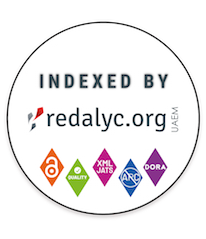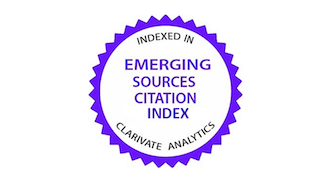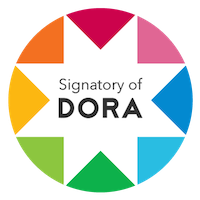Adaptation of fodder mixtures at different levels of amendment and irrigation in Nariño, Colombia
DOI:
https://doi.org/10.15517/am.v32i2.41265Keywords:
grasses, legumes, dry matter, seasonality, feed cropsAbstract
Introduction. Specialized dairy farming in the high tropics of Nariño faces with different limitations, such as the variability and seasonality of the fodder supply. Objective. To evaluate six mixtures of perennial, annual, and leguminous fodder, three levels of amendment and two levels of irrigation in the high tropic of Nariño. Materials and methods. The study was developed between December 2017 and November 2018 at the Obonuco research center of the Colombian Agricultural Research Corporation. A complete randomized block design was used, with an arrangement of subdivided plots. It was measured: vigor, height, coverage, number of leaves, incidence of pests, incidence and severity of diseases, nutritional deficiencies, and dry matter (MS). Software R V.3.6.0 was used for the analysis. Results. The association (gramineous and leguminous) generated a direct effect on the yield of MS, cover, and number of leaves, being the best mixture the one composed by Dactylis glomerata, Trifolium repens L., and Trifolium pratense L. For the variable height, the highest values were presented in the Tetrablend 260 mixture. Most of the treatments were kept on scales without damage and slight damage for the variables incidence of pests, severity of diseases and nutritional deficiencies. Conclusion. The mixtures of grasses and legumes showed comparative advantages over pure grass monoculture in terms of MS yield and agronomic variables. In general, all the treatments were kept in minimum and light damage thresholds for the phytosanitary variables.
Downloads
References
Altier, N., Rebuffo, M., & Cabrera, K. (Eds.). (2010). Enfermedades y plagas en pasturas. Instituto Nacional de Investigación Agropecuaria. http://www.ainfo.inia.uy/digital/bitstream/item/7729/1/st-183-2010-p.19-35.pdf
Beraza-Sánchez, S., Guerisoli-Pereira, G., & Rodríguez-Echenique, E. (2017). Morfogenésis en Festuca arundinacea y Dactylis glomerata [Tesis de pregrado, Universidad de la República de Montevideo]. Repositorio de la Universidad de la República de Montevideo. https://www.colibri.udelar.edu.uy/jspui/bitstream/20.500.12008/18614/1/TTS_BerazaS%c3%a1nchezSantiago.pdf
Black, A. D., Moot, D. J., & Lucas, R. J. (2006). Spring and autumn establishment of Caucasian and white clovers with different sowing rates of perennial ryegrass. Grass and Forage Science, 61(4), 430-441. https://doi.org/10.1111/j.1365-2494.2006.00552.x
Cadena-Guerrero, M. M., García-Dávila, M. A., & Castro, E. (2019a). Phenotypic stability of genotypes Lolium sp. In the high tropic of Nariño, Colombia. Agronomía Mesoamericana, 30(2), 483-495. https://doi.org/10.15517/am.v30i2.34307
Cadena-Guerrero, M. M., García-Dávila, M. A., Meneses-Buitrago, D. H., Morales-Montero, S. P., & Castro-Rincón, E. (2019b). Adaptation of ten cultivars of Lolium sp. In the high tropic of Nariño, Colombia. Agronomía Mesoamericana, 30(1), 165-178. https://doi.org/10.15517/am.v30i1.34094
Camacho-García, J. L., & García-Muñiz, J. G. (2003). Dry matter yield and nutritive value of four alfalfa varieties associated with white clover, perennial ryegrass, tall fescue and orchard grass. Veterinaria Mexico, 34(2), 149–177. https://www.redalyc.org/articulo.oa?id=42334204
Cardona-Mejia. (2012). Pastos y especies forrajeras [Modulo]. Federación Colombiana de Ganaderos. https://www.fedegan.org.co/modulo-pastos-y-especies-forrajeras
Carulla, J. E., Cárdenas, E., Sánchez, N., & Riveros, C. (2003, 1-2 setiembre). Valor nutricional de los forrajes más usados en los sistemas de producción lechera especializada de la zona andina colombiana. En Eventos y Asesorías Agropecuarias EU (Ed.), Seminario Nacional de Lechería Especializada: Bases Nutricionales y su Impacto en la Productividad, Medellín, Colombia (pp.1–16). Eventos y Asesorías Agropecuarias EU.
Castro-Rincon, E., Carulla-Fornaguera, J. E., & Cárdenas-Rocha, E. A. (2019). Adaptación de gramíneas asociadas con Lotus uliginosus Schkuhr en el trópico alto de Colombia. Pastos y Forrajes, 42(1), 13–22. http://scielo.sld.cu/pdf/pyf/v42n1/2078-8452-pyf-42-01-13.pdf
Cobo, J. A. (2003). El suelo y el agua en la producción de pastos. Cobo Lemos, José Alirio.
Cuesta-Muñoz, P. A., Bolaños-Alomia, A., & Betancourth, C. A. (2006, diciembre 15). Nuevas especies forrajeras para mejorar la competitividad de los sistemas de produccion de leche del Altiplano de Nariño [Día de campo]. Corporación Colombiana de Investigación Agropecuaria, Pasto, Colombia. https://repository.agrosavia.co/handle/20.500.12324/18646
Cunningham, P. J., Foot, J. Z., & Reed, K. F. M. (1993). Perennial ryegrass (Lolium perenne) endophyte (Acremonium lolii) relationships: the Australian experience. Agriculture, Ecosystems and Environment, 44(1–4), 157–168. https://doi.org/10.1016/0167-8809(93)90044-P
de Mendiburu, F. (2017, 12 de septiembre). Package ‘agricolae’. The Comprehensive R Archive Network. https://cran.r-project.org/web/packages/agricolae/agricolae.pdf
Demanet-Filippi, R. (2014). Manual de Especies Forrajeras [Manual]. Consorcio Lechero. http://www.consorciolechero.cl/industria-lactea/wp-content/uploads/2014/10/Manual-de-Especies-Forrajeras-2014-Watts.pdf
Edmeades, D. C., Shannon, P. W., Pringle, R. M., & Mansell, G. P. (2012). Effects of lime on pasture production on soils in the north island of new zealand: 4. Predicting lime responses. New Zealand Journal of Agricultural Research, 27(3), 371–382. https://doi.org/10.1080/00288233.1984.10430638
Estrada-Álvarez, J. (2002). Pastos y forrajes para el trópico colombiano. Editorial Universidad de Caldas.
ETHzürich. (2016, 19 de junio). Identification of novel rice blast resistance sources. Institute of Molecular Plant Biology. https://impb.ethz.ch/research/reseach-pb/research-pb/research-nkb/resistancessources.html
Ganderats, S., & Hepp, C. (2003). Mecanismos de crecimiento de Lolium perenne, Festuca arundinacea y Dactylis glomerata en la zona intermedia de Aysen. Agricultura Tecnica, 63(3). 259-265. https://doi.org/http://dx.doi.org/10.4067/S0365-28072003000300005
González, K. (2017, 25 de julio). Pasto azul (Dactylis glomerata). Zootecnia y Veterinaria es mi pasión. https://zoovetesmipasion.com/pastos-y-forrajes/pasto-azul-dactylis-glomerata/
Keren, Z. (2017). Growth and feed quality of five perennial ryegrass (Lolium perenne L.) cultivars under three water treatments [Magister Science Thesis, Lincoln University]. Lincoln University Repository. https://researcharchive.lincoln.ac.nz/bitstream/handle/10182/8825/Zhong_MApplSc.pdf?sequence=3
Maldonado-Peralta, M. de los ángeles, Rojas-Garcia, A. R., Torres-Salado, N., Herrera-Pérez, J., Cancino, S. J., Ríos, J. V., Hernández-Garay, A., & Hernández-Guzmán, F. J. (2017). Productivity of orchard grass (Dactylis glomerata L.) alone and associated with perennial ryegrass (Lolium perenne L.) and white clover (Trifolium repens L.). Revista Brasileira de Zootecnia, 46(12), 890–895. https://doi.org/10.1590/S1806-92902017001200003
Maza-Chamba, W.(2015). Evaluación de tres especies forrajeras: rye grass inglés (Lolium perenne L.), pasto azul (Dactylis glomerata L.) y trebol blanco (Trifolium repens L.) en dos pisos altitudinales del cantón Loja [Tesis de pregrado, Universidad Nacional de Loja]. Repositorio de la Universidad Nacional de Loja. https://dspace.unl.edu.ec/jspui/bitstream/123456789/11584/1/TESIS%20WILMER%20ALCIDES%20MAZA%20CHAMBA.pdf
McCarthy, S., Wims, C., Lee, J., & Donaghy, D. (2016). Perennial ryegrass grazing management in spring [Brochure]. Dairy NZ. https://www.dairynz.co.nz/media/2634153/perennial-ryegrass-grazing-guide-web.pdf
Mckenzie, F. R. (1994). Managing Lolium perenne L. (perennial ryegrass) in a sub-tropical environment in Kwazulu-Natal, South Africa [Postdoctoral Thesis, University of Natal Pietermaritzburg]. University Kwazulu – Natal Repository. https://researchspace.ukzn.ac.za/xmlui/bitstream/handle/10413/10910/McKenzie_Frank_R_1994.pdf?sequence=1&isAllowed=y
Mesén, M., & Sánchez, W. (2006). Evaluación de gramíneas forrajeras en la zona alta lechera de Costa Rica. Alcances Tecnológicos, 4(1), 29–36. https://doi.org/10.35486/at.v4i1.112
Morales, A., León, J., Cárdenas, E., Afanador, G., & Carulla, J. (2013). Calidad de leche, digestibilidad in vitro de la materia seca y producción en vacas alimentadas con grampíneas solas o asociadas con Lotus uliginosus. Revista de la Facultada de Medicina Veterinaria y de Zootecnia, 60(I), 32–48. http://www.scielo.org.co/pdf/rfmvz/v60n1/v60n1a04.pdf
Pérez-Bribiesca, T., Hernández-Garay, A., Pérez-Pérez, J., Herrera-Haro, J., & Bárcena-Gama, R. (2002). Respuesta productiva y dinámica de rebrote del ballico perenne a diferentes alturas de corte. Técnica Pecuaria en México, 40(3), 251–263. https://doi.org/10.22319/rmcp.v40i3.1297
R Development Core Team 3.0.1. (2013). A language and environment for statistical computing. R Foundation for Statistical Computing. http://www.r-project.org
Reynolds, C. (2000). Forage evaluation using measurements of energy metabolism. In. D. Givens, R. Axford, & E. Owen (Eds.). Forage evaluation ruminant nutrition (pp. 95-113). CAB International Publishing.
Rojas- García, A. R., Hernández-Garay, A., Ayala, W.,Mendoza-Pedroza, S. I. M., Cancino, S. J., Vaquera-Huerata, H. V., & Santiago-Ortega, M. A. S. (2016). Comportamiento productivo de praderas con distintas combinaciones de ovillo (Dactylis glomerata L.), ballico perenne (Lolium perenne L.) y trébol blanco (Trifolium repens L.). Revista de La Facultad de Ciencias Agrarias, 48(2), 57–68. https://www.redalyc.org/pdf/3828/382847506012.pdf
Sánchez, L., & Villaneda, E. (2009). Renovación y Manejo De Praderas En El Trópico Alto Colombiano [Folleto]. Repositorio de la Corporación Colombiana de Investigación Agropecuaria. https://repository.agrosavia.co/handle/20.500.12324/12867
Thomas, H., James, A. R., & Humphreys, M. W. (1999). Effects of water stress on leaf growth in tall fescue, Italian ryegrass and their hybrid: Rheological properties of expansion zones of leaves, measured on growing and killed tissue. Journal of Experimental Botany, 50(331), 221–231. https://doi.org/10.1093/jxb/50.331.221
Toledo, J. M. (Ed.). (1982). Manual para la evaluación agronómica: Red Internacional de Evaluación de Pastos Tropicales. Centro Internacional de Agricultura Tropical. http://ciat-library.ciat.cgiar.org/Forrajes_Tropicales/pdf/Books/split/Manual_Evaluacion.pdf
Vargas-Martínez, J. D. J., Sierra-Alarcón, A., Benavidez-Cruz, J., Avellaneda-Avellaneda, Y., & Ariza-Nieto, C. (2018). Establecimiento y producción de raigrás y tréboles en dos regiones del trópico alto colombiano. Agronomía Mesoamericana, 29(1), 177-191. https://doi.org/10.15517/ma.v29i1.28077
Veiga, M., Botana, A., Resch, C., Pereira-Crespo, S., Dagnac, T., Valladares, J., Díaz, N., Fernández-Lorenzo, B., & Flores-Calvete, G. (2009, 26-29 abril). Comparación de una mezcla de tréboles anuales con raigrás inglés en un sistema de pastoreo con vacas de leche. Innovación Sostenible en Pastos: hacia una Agricultura de Respuesta al Cambio Climático, Coruña, España. Pastos, 45(2), 235–240. http://ciam.gal/uploads/publicacions/1238archivo.pdf
Vélez, M., Hincapie, J., Matamoros, I., & Santillan, R. (2002). Producción de Ganado Lechero en el Trópico (4ª Ed.). Zamorano Academic Press.
Villalobos, L., & Sánchez, J. M. (2010). Evaluación agronomica nutricional del pasto ryegrass perenne tetraploide (Lolium perenne) producido en lecherias de las zonas altas de costa rica. ii. valor nutricional. (Spanish). Agronomía Costarricense, 34(1), 31–42. http://doi.org/10.15517/RAC.V34I1.6698
Wickham, H. (2016). ggplot2: Elegant Graphics for Data Analysis. Springer-Verlag New York. https://ggplot2.tidyverse.org
Zhouri, L., Kallida, R., Shaimi, N., Barre, P., Volaire, F., Gaboun, F., & Fakiri, M. (2019). Evaluation of cocksfoot (Dactylis glomerata L.) population for drought survival and behavior. Saudi Journal of Biological Sciences, 26(1), 49–56. https://doi.org/10.1016/j.sjbs.2016.12.002

Downloads
Additional Files
Published
How to Cite
Issue
Section
License
1. Proposed policy for open access journals
Authors who publish in this journal accept the following conditions:
a. Authors retain the copyright and assign to the journal the right to the first publication, with the work registered under the attribution, non-commercial and no-derivative license from Creative Commons, which allows third parties to use what has been published as long as they mention the authorship of the work and upon first publication in this journal, the work may not be used for commercial purposes and the publications may not be used to remix, transform or create another work.
b. Authors may enter into additional independent contractual arrangements for the non-exclusive distribution of the version of the article published in this journal (e.g., including it in an institutional repository or publishing it in a book) provided that they clearly indicate that the work was first published in this journal.
c. Authors are permitted and encouraged to publish their work on the Internet (e.g. on institutional or personal pages) before and during the review and publication process, as it may lead to productive exchanges and faster and wider dissemination of published work (see The Effect of Open Access).



























